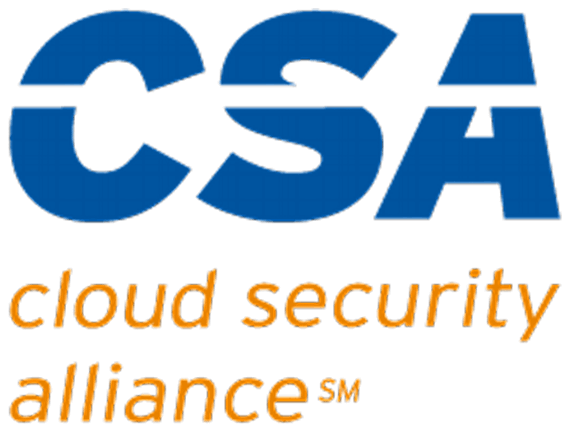As technological change accelerates, small businesses have more opportunities to leverage IT innovations for growth, efficiency, and competitive advantage. However, staying on top of the latest IT trends can take time for small business owners juggling multiple priorities. Understanding the key trends shaping the IT landscape—and how they can directly impact business outcomes—can help small businesses stay ahead of the curve, optimize their operations, and make informed decisions that drive success.

Here are the top IT trends that small business owners should be aware of in 2025 and beyond:
Cloud Computing: Hybrid and Multi-Cloud Solutions
Cloud computing is no longer a new concept, but its use has evolved dramatically, especially for small businesses. Today, hybrid and multi-cloud environments are becoming the norm as companies look to optimize flexibility, cost efficiency, and security.
- Hybrid cloud allows small businesses to combine the benefits of on-premise infrastructure with cloud services. They can maintain sensitive data in-house while leveraging the cloud’s scalability for other operations.
- Multi-cloud strategies involve using services from multiple cloud providers (such as AWS, Microsoft Azure, and Google Cloud), enabling businesses to avoid vendor lock-in and choose the best services for specific needs.
For small businesses, hybrid and multi-cloud solutions offer the agility to scale operations quickly without significant upfront investments in IT infrastructure. Moreover, these solutions provide enhanced disaster recovery capabilities, as businesses can back up data across multiple environments.
Example: A local retail business might store customer data in an on-premise database for privacy and compliance but use cloud services for their online store and marketing automation. This setup reduces hardware costs while keeping critical data secure.
Tools to consider: Microsoft Azure, Google Cloud, AWS
Artificial Intelligence and Machine Learning for Business Automation
AI and machine learning are reshaping how small businesses handle routine tasks, providing tools to automate everything from customer service to inventory management. The key benefit for small businesses is that AI allows them to operate more efficiently and free up human resources for higher-value tasks.
- Chatbots powered by AI can handle basic customer inquiries 24/7, providing a quick and effective way to enhance customer service without needing a dedicated team.
- Predictive analytics tools, driven by machine learning, can help businesses anticipate trends, manage inventory, and improve forecasting accuracy, making supply chain operations more efficient.
AI’s potential for small businesses extends to marketing, too. AI-driven platforms offer personalized customer experiences and automate email marketing and social media management tasks.
Example: A local restaurant can use AI-driven tools to analyze customer preferences and automatically adjust menu offerings, enhancing customer satisfaction and optimizing inventory to minimize waste.
Tools to consider: HubSpot’s AI tools, Zendesk Chat, IBM Watson
Cybersecurity: Focus on Endpoint Protection and Zero Trust
As small businesses increasingly embrace digital tools, they become more vulnerable to cyberattacks. Due to their often limited security resources, small businesses are prime targets for cybercriminals. In 2024, two key cybersecurity trends are gaining traction: endpoint protection and zero trust architecture.
- Endpoint protection is critical because every device connecting to your network—whether a laptop, smartphone, or IoT device—represents a potential entry point for cybercriminals. Comprehensive endpoint security solutions protect all devices, ensuring that data remains secure.
- Zero trust is a security model that assumes no entity inside or outside the network is trusted by default. This approach requires all users, devices, and systems to be authenticated and verified continuously. It’s especially valuable for businesses with remote or hybrid workforces, where employees access corporate systems from various locations and devices.
Example: A small marketing agency with a remote workforce can implement zero trust principles, ensuring employees can securely access company resources from anywhere without compromising data integrity.
Tools to consider: CrowdStrike Endpoint Security, Palo Alto Networks Zero Trust, Datacate Endpoint Security
5G and Edge Computing
The rollout of 5G networks promises faster data speeds and more reliable connections. For small businesses, this is more than just faster internet—it opens up new possibilities for how data is processed and used in real-time. Combined with edge computing, where data processing occurs closer to where it’s generated rather than in a centralized data center, 5G enables faster and more responsive applications.
Small businesses that rely on IoT devices or have heavy data processing needs (e.g., real-time analytics) can significantly benefit from these technologies. Edge computing allows businesses to reduce latency and improve the performance of data-driven applications, enhancing customer experiences and optimizing operations.
Example: A small logistics company can use 5G and edge computing to track shipments in real time, optimize delivery routes, and provide accurate customer updates.
Tools to consider: Verizon 5G, Amazon Web Services Edge Solutions
Remote Work and Collaboration Tools
The rise of remote work is here to stay, and small businesses continue to adopt tools that make collaboration seamless, whether employees are in the office or working from home. Solutions like video conferencing, document sharing, and project management platforms enable small businesses to maintain productivity across distributed teams.
- Unified communications platforms combine video, voice, messaging, and file sharing, making it easy for teams to collaborate from anywhere.
- Project management tools like Asana or Trello allow teams to stay on track with tasks and deadlines, improving workflow visibility.
These collaboration tools allow small businesses to retain top talent, reduce overhead costs, and provide flexible work environments without sacrificing productivity.
Example: A small consultancy can use Slack and Zoom to keep their distributed team connected, ensure project milestones are met, and easily communicate with clients.
Tools to consider: Slack, Zoom, Asana
Data Analytics and Business Intelligence (BI)
Access to real-time data is invaluable for small businesses looking to make informed decisions. With the rise of data analytics and BI tools, even companies with modest IT budgets can now harness the power of data to uncover insights that drive strategy and growth.
- Self-service BI tools allow business owners to analyze data without needing deep technical expertise, helping them identify trends, customer behaviors, and areas for operational improvement.
- Data visualization platforms like Power BI or Tableau make it easier to interpret complex datasets, turning them into actionable insights.
For small businesses, data analytics can be a game-changer, whether it’s improving customer engagement through targeted marketing or optimizing supply chain efficiency by forecasting demand.
Example: A local e-commerce business can use Google Analytics to track customer behavior and refine marketing strategies, improving conversion rates and boosting sales.
Tools to consider: Google Analytics, Tableau, Microsoft Power BI
Conclusion
As these IT trends evolve, small business owners must remain adaptable and proactive in adopting the right technologies. By understanding and leveraging cloud computing, AI, cybersecurity advancements, 5G, remote collaboration tools, and data analytics, small businesses can stay competitive, optimize their operations, and drive growth in 2025 and beyond.
Taking advantage of these innovations doesn’t have to be overwhelming. By partnering with experienced IT providers like Datacate, small businesses can implement and manage cutting-edge IT solutions effectively, maximizing the return on investment and maintaining their focus on growing the business.




